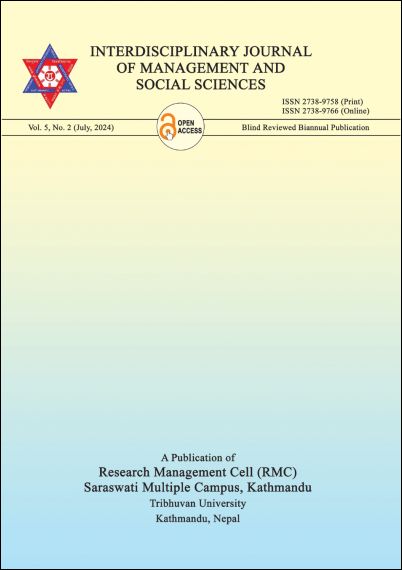Son as the Way of Salvation: Sociological Analysis of the Preta Kalpa of Garudamahapurana
DOI:
https://doi.org/10.3126/ijmss.v5i2.69458Keywords:
Garudamahapurana, Patriarchy, Preta kalpa, ritual performer, salvation, significance of sonAbstract
The Puranas have displayed the socio-cultural system of the ancient society. In this context, this article aims to portray the roles of men in The Preta Kalpa of The Garudamahapurna. To gain the research objective data has been collected through the historical content analysis method from the text of The Preta Kalpa of The Garudamahapurana. Content analysis method has been used to analyze the collected data.In The Preta Kalpa of The Garudamahapurana, men are consistently depicted as holding superior status and are accorded significant respect and responsibility in familial ritual practices. Notably, the acts of Sapindikarana and performing Sraddha for deceased parents are exclusively undertaken by male members of the family. It is firmly believed that the release of the spirits of the deceased is contingent upon the due execution of these rituals by sons, elder and younger brothers, or close male relatives in the absence of direct descendants. Furthermore, the presence of sons is deemed essential to absolve parents from earthly transgressions, thereby enforcing a patriarchal social structure that aligns with Marx's assertion regarding the production of knowledge. Consequently, this research affirms the applicability of patriarchal hegemonic assumptions, thus framing the theory of patriarchy as a pertinent analytical lens for gender studies within The Preta Kalpa of The Garudamahapurana.
Downloads
Downloads
Published
How to Cite
Issue
Section
License

This work is licensed under a Creative Commons Attribution-NonCommercial 4.0 International License.

